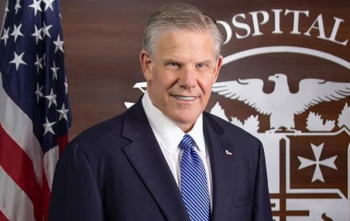
Congressional spending deal: What it means for hospitals and doctors
Lawmakers crafted a package to fund the government through the fall. Health systems gained some wins, but physicians bemoaned cuts in Medicare payments.
Congress crafted a spending deal to avoid a federal government shutdown, but healthcare leaders offered mixed reviews to the package.
The House of Representatives passed the $460 billion spending package Wednesday, and the Senate approved the legislation Friday night, hours before the shutdown deadline.
Health systems expressed relief that the package prevents cuts to a key Medicaid program that helps safety net hospitals, and other hospital programs received another lifeline. Doctors, however, fumed after Congress allowed reductions in Medicare payments.
Here’s a quick rundown of the package.
Physician payments
Doctors had hoped that Congress would eliminate reductions in Medicare payments to physicians. On Jan. 1,
Congress offered some relief in the new package, but not as much as doctors wanted. The package includes a smaller cut for doctors, settling on a 1.68% cut in payments.
Jesse M. Ehrenfeld, MD, president of the American Medical Association, said in a statement, “We are extremely disappointed that about half of the 2024 Medicare physician payment cuts will be allowed to continue.”
The Medical Group Management Association also chastised lawmakers.
“We are deeply disappointed with Congress’ half-hearted attempt to remedy the devastating blow physician practices were dealt by the 2024 Medicare Physician Fee Schedule,” Anders Gilberg, the MGMA’s senior vice president of government affairs, said in a statement. “Anything less than a full reversal of the 3.4% cut is appallingly inadequate.”
- Read more:
What hospitals want from Washington in 2024
Delaying DSH cuts
Hospitals pressed lawmakers to avert reductions of billions of dollars
Under the spending package, the $8 billion cut slated for the 2024 fiscal year is eliminated. The cuts for the 2025 fiscal year are delayed until Jan. 1, 2025, the American Hospital Association said.
Bruce Siegel, MD, president and CEO of America’s Essential Hospitals, expressed relief that Congress blocked the cuts. “Essential hospitals thank House and Senate lawmakers for their decisive action this week to stop funding cuts that jeopardized access to care and put the nation’s health care safety net at risk,” Siegel said in a statement.
“By eliminating this fiscal year’s $8 billion cut to Medicaid disproportionate share hospital (DSH) funding and delaying the fiscal year 2025 cut, Congress affords policymakers valuable time to find a lasting solution to the decade-long threat to DSH support,” Siegel said. “This funding is crucial to essential hospitals and the disadvantaged people and communities they serve.”
Congress had scheduled cuts in the program in response to the Affordable Care Act, but hospital leaders note that millions of Americans remain without coverage, making the DSH program a vital source of aid.
Rural hospital programs
Rural hospitals also will continue to be able to get support from two key Medicare programs.
The spending package continues funding for the Medicare-dependent Hospital (MDH) program and Medicare’s Low-Volume Hospital (LVH) program through December 2024, the hospital association said.
The Medicare-dependent Hospital program provides aid to smaller hospitals with a large share of Medicare patients; it supports more than 170 hospitals. Medicare’s Low-Volume Hospital program provides funding to rural hospitals with a relatively small number of Medicare patients. That program supports more than 600 hospitals.
Other provisions
The package continues funding for Community Health Centers, National Health Service Corps, and Teaching Health Centers Graduate Medical Education programs through December, the AHA said.
The spending package does not include
Health systems have said proposals to cut hospital outpatient payments are inappropriate because hospitals face different regulatory demands, including the need to have around-the-clock standby capacity for emergencies.








































